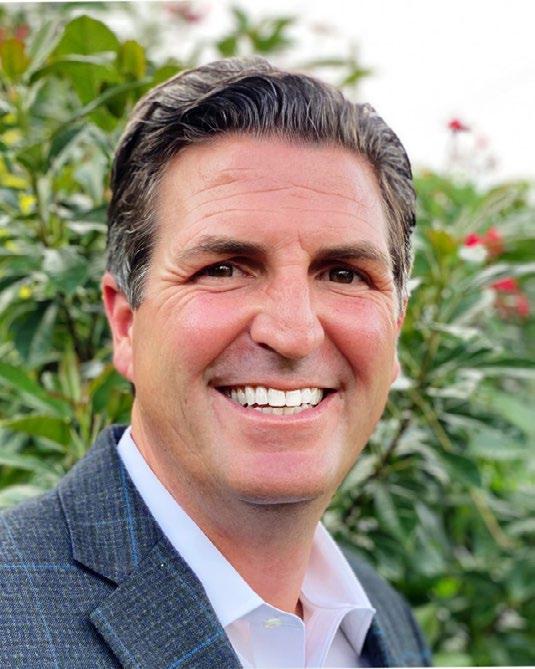
3 minute read
Chris Bogdan, Waterworks Business Development Mgr., Ferguson
Chris Bogdan
Waterworks Business Development Manager Ferguson
Advertisement
What are your hopes for the future of our water sources?
If not managed correctly, pollutants such as trash, sediment and excessive nutrients are carried back to our lakes, streams and oceans - compromising the ability to fish, swim, and recreate.
To address this threat, we worked with our stakeholders to bring to market a suite of innovative stormwater management products for both private and public projects. As a result, we curated a portfolio of solutions geared toward managing the impacts of stormwater volume and filtration and collecting pollutants from space-efficient storage, filters and screens, permeable surfaces, and specialty soil mixes and media.
Most people take water for granted and never think about the process behind the water they drink each day. I hope that more individuals will start to appreciate just how valuable water really is - to think of it as a finite resource and make water-wise decisions.
Why is water quality still a topic of concern globally?
Water is a valuable resource and flows through everything we do. Therefore, understanding our water quality is vital to understanding safe water supplies, and ultimately, the direction of public health.
When rivers, lakes and reservoirs support an abundance of aquatic life, it’s an indicator that the quality of water is good and healthy to drink.
What role does the water industry play in improving water quality? If you could change one thing about the way water quality is managed currently, what would it be?
Operating in a flexible network of collaborators from manufacturers and water technology startup companies to municipalities to various nonprofits and agencies is essential to fostering innovation and overcoming water challenges at scale.
Challenges relating to climate insecurity and heightened water stress considerably impact our overall civil infrastructure, especially vulnerable communities.
Globally, about 3 billion people lack access to adequate water quality facilities to safely wash their hands at home. In addition, more than 44 million Americans don’t have access to clean drinking water.
As an important stakeholder in water, we are uniquely positioned to collectively ensure water availability and sustainable management for present and future generations. For example, if we know that water quality is affected by polluted run-off and other factors, we can start to address this part of the issue.
We as an industry must continue to respond to the need for better water quality by restoring the health of our environment. What role do you think technology will play in securing water quality?
Ferguson is constantly seeking out new technologies and taking steps to help improve water quality. Early technologies and strategies for improving water quality included sand filters to remove pathogens (disease-causing organisms) and nutrients that cause algal blooms.
However, research has shown that sand alone is not sufficient to use in many locations. Thus the water industry has developed newer technologies and experimented with different combinations of materials to improve the quality of the effluents leaving these systems. One emerging technology uses sand with other materials to further remove nutrients relate to algal blooms - the “Bold & Gold” (B&G) media.
B&G media uses recycled materials with sand and clay. Previously used/recycled materials, such as iron filings from iron and tire crumbs and chips from tires are part of the B&G media. These B&G media are inorganic and thus decay slowly compared to organic media.
B&G media are highly valued for reducing algal blooms, restoring recreational uses, and sustaining the fish supplies and other valued animals and plants living within the water.
What steps are you taking to help improve water quality?
We developed the Ferguson Urban Green Infrastructure initiative to address urban runoff. Many cities, local governments and water utilities are increasingly struggling to manage stormwater runoff, specifically urban runoff containing pollutants. Website: ferguson.com

